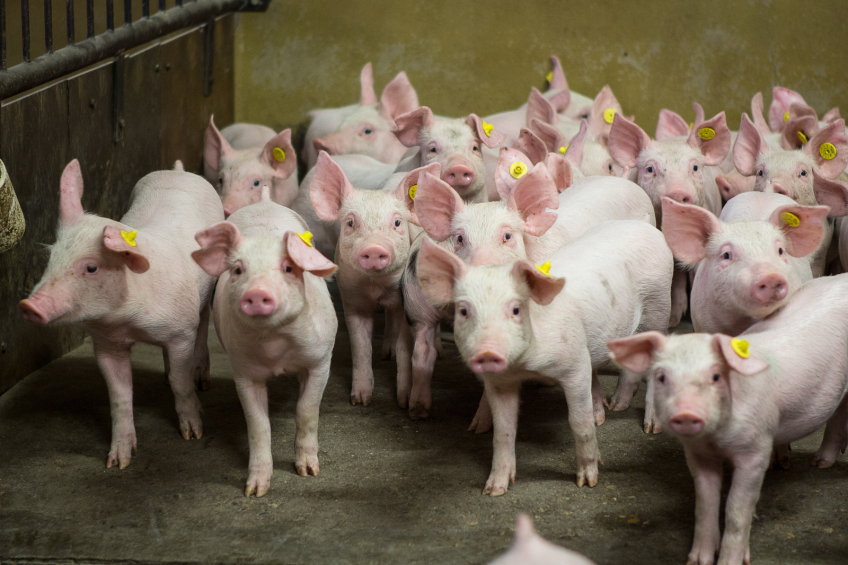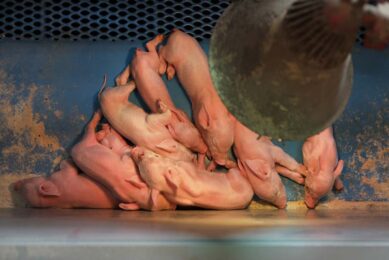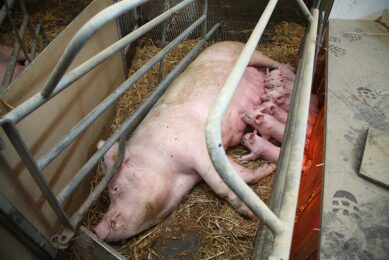Using phytogenics to boost gut health in weaned piglets

An optimal and consistent piglet weight at the end of the nursery period is necessary to exploit and realise the full genetic potential of growing/finishing pigs. An optimal start after weaning is the basis for a successful pig production.
Weaning is a stressful moment of a piglet’s life as it can be accompanied by gastrointestinal disorders. The term ‘gut health’ is widely used in order to define animal health and can be interpreted in many different ways. The definition provided by Bischoff, 2010, emphasises the key aspects of gut health as: “an effective digestion and absorption of nutrients, the absence of gastrointestinal illness, a normal and stable intestinal microbiota, an effective immune status and the general status of well-being”.
In the past, antibiotics were used widely to influence gut health, but in 2006 the EU imposed a ban on their use as antimicrobial growth promoters. Numerous strategies have since been tested as an alternative to control post-weaning disorders with the aim to improve gut health, including the use of phytogenic feed additives (PFAs). These natural plant-derived actives have proven antioxidant, anti-inflammatory and antibacterial effects.
Benefits of PFAs in piglet diets
Fresta F, produced by Delacon Biotechnik, is known to alleviate negative consequences in weaned piglets and is an example of how PFAs can affect gut health in piglets. This product was the first, 100% pure PFA, to receive a zootechnical registration – the so-called scientific gold standard for feed additives – by the EU to be used as a performance enhancer in piglets. The key ingredients are caraway and lemon essential oils – a fully natural product, without any nature-identical (i.e. chemical) ingredients, with well documented scientific data to demonstrate the effects of a successful PFA on different aspects of gut health. The meta-analysis of five studies demonstrated an increased body weight at the end of the nursery period by 3.4% and average daily gain by 5.3% while feed efficiency was improved by 2% (Figure 1).
Figure 1 – Effect of Fresta F on body weight (BW), average daily gain (ADG), average daily feed intake (ADFI) and feed conversion ratio (FCR) – Meta-analysis of 5 studies; *p<0.05.>

The weaning process is accompanied with a drop in feed intake and selected PFAs can increase sensorial stimulation and feed palatability. The product was effective to enhance piglet feed intake by 4%. In addition to adequate feed intake, feed digestion and nutrient absorption is vital to support a piglet’s growth. Several studies with the additive showed an improved crude protein digestibility between 3% and 9% during the post-weaning period. Intestinal permeability of nutrients depends on the activity of specific transporters. Increasing the activity of those transporters enhances the capacity of the intestine to absorb nutrients. It was shown that intestinal epithelium from piglets fed with the phytogenic product had increased glucose transport capacity (+28%) via the SGLT1-transporter compared to a control diet, measured by Ussing chambers.
Post-weaning gastrointestinal disorders
Gastrointestinal disorders in post-weaning pigs are associated with the proliferation of pathogenic bacteria, in particular, enterotoxigenic E. coli playing a significant role. Controlling their population or the expression of their virulence factors can be used to minimise these disorders. Many essential oils have shown antimicrobial properties, by directly killing the bacteria, however the required concentrations are rather high and economically not viable (Table 1). On the other hand, much lower concentrations are needed to disturb the bacterial communication as many important functions for virulence, including pathogens adhesion to the intestinal epithelia, production of toxins and biofilm formation, are controlled by quorum sensing. In a study by Gärtner and Zentek, it was demonstrated that E. coli adhesion to intestinal cells from piglets fed the product was reduced by 50% compared to the control.
Beside pathogens, microbial and feed derived toxic substances are problematic, such as some products of microbial protein metabolism (e.g. ammonia). Inflammatory reactions are the response of the hosts immune system to fend off these challenges, but the detoxification process of toxic compounds may result in the production of free radicals, that are capable of damaging the intestinal barrier. It is now well known, that many different PFAs offer antioxidant and/or anti-inflammatory properties to support the immune system of the host, either directly (by radical scavenging activity) or indirectly (by upregulating antioxidant gene expression and anti-inflammatory enzymes). For example, it was shown by Müller et al. that feed supplementation with essential oils from oregano, rosemary and thyme increased the antioxidant capacity in the jejunum and liver of piglets and that PFA can induce the xenobiotic system to improve the defence against microbial and feed derived toxic substances.
In this regard, a Delacon study in cooperation with the Nanjing Agriculture University in China revealed an increase of the antioxidant enzymes glutathione peroxidase (GSH-PX) and superoxide dismutase (SOD) and decreased lipid peroxidation as indicated by reduced malondialdehyde (MDA) concentration in blood plasma with the product inclusion when compared to an unsupplemented control feed (Figure 2). In addition, limonene the main active substance of lemon oil, was shown to reduce leukocytes and pro-inflammatory cytokines such as tumour necrosis factor α (TNF-a) after an induced acute inflammation. These studies bolster the claim of PFA beneficially influencing the animals’ health by directly supporting its antioxidant and anti-inflammatory mechanisms.
Figure 2 – Improvement of antioxidant enzymes superoxide dismutase (SOD), glutathione peroxidase (GSH-PX) and malondialdehyde (MDA) in blood plasma of piglets.

Boosting pig profitability
Optimal feeding and management strategies after weaning are the key to success and long-term profitability in pig production. Factors which support and improve gut health, such as feed digestion, nutrient absorption, balance of the intestinal microbiota and the immune system, in a piglet’s early life may have far-reaching influence on further performance. The broad spectrum effects exerted by PFA’s can influence these mechanisms resulting in improved animal performance and thus more efficient animal production. Especially the effects of PFAs on quorum sensing signaling offers huge potential, as few studies are dedicated to this topic in relation to animal disease and production. With proven beneficial characteristics, PFAs are foreseen to have the potential to become a new generation of substances for innovative swine nutrition and welfare.
 Beheer
Beheer








 WP Admin
WP Admin  Bewerk bericht
Bewerk bericht